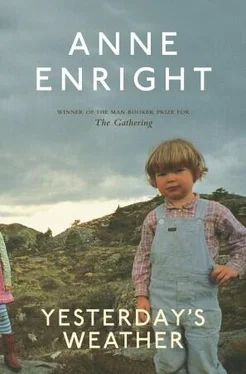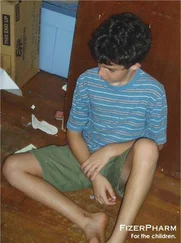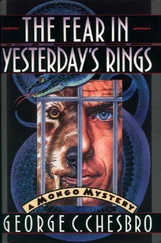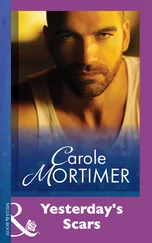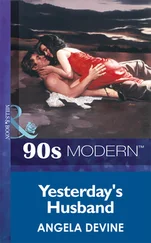But it is a gift, like snow. It is a gift the way the bowl sits so well on the table, it is a gift how it all, including you, was pushed out through a cleft in time. Pop! I can move my hand from the bowl, over a fork, to my own blue cup, and the distance between them makes me content.
2.
You may say, in you turn, that I am an aquatic kind of girl, an underwater sort of thing. Since you left I spend most of my time on my back, as it were. I can see the street in a fan of light on the bedroom ceiling. When someone walks past, they move a line of shadow like the needle on a dial. Cars make everything shiver.
I remember most of what you said and I said. I don’t see the point of this landscape of yours, blank and full of frights with no clock in it. All your pain strikes me as very nineteen-hundred-and-sixty-seven. I come from the generation that never took drugs, the generation that grew up. I am a woman that was born in 1962.
And you know what that means.
Despite the fact that I was born in nineteen-hundred-and-sixty-two, I go around the house mouthing words like they were new, like the whole problem of words was as fresh as Paris. You have infected me with the fifties, une femme d’un certain âge who knows how to dress but not how to speak. Sweetheart.
Tell me. When was the Spanish Civil War? Is that where you are? Having a serious discussion about reification and blood, rubbing alcohol and the future. I bet the people you meet all have stories, perplexities, Slavic bones.
When I was ten a white horse ran into the side of the school bus and died. I saw the blood bubble out of his nose.
You should go to Berlin in nineteen-hundred-and-eighty-nine, with the wall coming down. You could put the Cabaret and the Jews back in perhaps. I am there, watching it all on TV, getting everything wrong. I am wrong about remote-control televisions, denim, history in general. I can’t tell where the party is. I do not have a democratic mind, but if I watch the right movie, the horse dies every time. (Why is it always white?)
So I am supposed to sit here with my finger in my gee until you come back — from Moscow in 1937 where you discover what music really is. From New Orleans in 1926 where you are eating the heart out of artichokes. From Dublin in 1914 where you are walking, pretentiously enough, on the beach. When I just got my credit cards, the sign of a woman who does not wait around.
History is just a scum on reality as far as I am concerned. You scrape it away.
Listen.
When de Valera died, I didn’t care either way, but a girl in my class was delighted, because her granny was buried half an hour before him, and all the soldiers along the road saluted as they went by.
I saw them landing on the moon, but my mother wasn’t bothered. She wanted to finish drying the dishes, so she said, ‘Sure I can see the moon, right here in the window.’
When I was ten a white horse ran into the side of the school bus and died. I saw the blood bubble out of his nose.
That is what I want to say. I was not washed up on the beach of your life like Venus on the tide. I know the distance between the cup and the bowl. I have seen Berlin. I have seen the moon. I will find out how to speak again and change the sheets, because it must change, I say, in order to give pleasure.
Never mind the horse.
The bingo coach (VZE 26) stopped at the top of the road and Mrs Maguire (no. 18), Mrs Power (no. 9) and Mrs Hanratty (no. 27) climbed on board and took their places with the 33 other women and 0 men who made up the Tuesday run.
‘If nothing happens tonight …’ said Mrs Maguire and the way she looked at Mrs Hanratty made it seem like a question.
‘I am crucified,’ said Mrs Hanratty, ‘by these shoes. I’ll never buy plastic again.’
‘You didn’t,’ said Mrs Power, wiping the window with unconcern.
‘I know,’ said Mrs Hanratty. ‘There’s something astray in my head. I wouldn’t let the kids do it.’
Nothing in her tone of voice betrayed the fact that Mrs Hanratty knew she was the most unpopular woman in the coach. She twisted 1 foot precisely and ground her cigarette into the plastic mica floor.
When Mrs Hanratty was 7 and called Maeve, she had thrown her Clarks solid leather, solid heeled, T-bar straps under a moving car and they had survived intact. The completion of this act of rebellion took place at the age of 55, with fake patent and a heel that made her varicose veins run blue. They pulsed at the back of her knee, disappeared into the fat of her thigh, ebbed past her caesarean scars and trickled into her hardening heart, that sat forgotten behind two large breasts, each the size of her head. She still had beautiful feet.
She kept herself well. Her silver hair was rinsed and set and there was black jet hanging from her ears. She was the kind of woman who squeezed into fitting rooms with her daughters, to persuade them to buy the cream skirt, even though it would stain. She made her husband laugh once a day, on principle, and her sons were either virgins or had the excuse of a good job.
Maeve Hanratty was generous, modest and witty. Her children succeeded and failed in unassuming proportions and she took the occasional drink. She was an enjoyable woman who regretted the fact that the neighbours (except perhaps, Mrs Power) disliked her so much. ‘It will pass,’ she said to her husband. ‘With a bit of luck, my luck will run out.’
At the age of 54 she had achieved fame in a 5-minute interview on the radio when she tried to dismiss the rumour that she was the luckiest woman in Dublin. ‘You’ll get me banned from the hall,’ she said.
‘And is it just the bingo?’
‘Just the bingo.’
‘No horses?’
‘My father did the horses,’ she said, ‘I wouldn’t touch them.’
‘And tell me, do you always know?’
‘Sure, how could I know?’ she lied — and diverted 126,578 people’s attention with the 3 liquidisers, 14 coal-scuttles, 7 weekends away, 6,725 paper pounds, and 111 teddy bears that she had won in the last 4 years.
‘If you ever want a teddy bear!’
‘Maeve …’ she said, as she put down the phone. ‘Oh Maeve.’ Mrs Power had run across over the road in her dressing gown and was knocking on the kitchen door and waving through the glass. There was nothing in her face to say that Mrs (Maeve) Hanratty had made a fool of herself, that she had exposed her illness to the world. Somehow no one seemed surprised that she had numbered and remembered all those lovely things. She was supposed to count her blessings.
There were other statistics she could have used, not out of anger, but because she was so ashamed. She could have said ‘Do you know something — I have had sexual intercourse 1,332 times my life. Is that a lot? 65 % of the occasions took place in the first 8 years of my marriage, and I was pregnant for 45 months out of those 96. Is that a lot? I have been married for 33 years and a bit, that’s 12,140 days, which means an average of once every 9.09 days. I stopped at 1,332 for no reason except that I am scared beyond reason of the number 1,333. Perhaps this is sad.’ It was not, of course, the kind of thing she told anyone, not even her priest, although she felt a slight sin in all that counting. Mrs Hanratty knew how many seconds she had been alive. That was why she was lucky with numbers.
It was not that they had a colour or a smell, but numbers had a feel like people had when you sense them in a room. Mrs Hanratty thought that if she had been in Auschwitz she would have known who would survive and who would die just by looking at their forearms. It was a gift that hurt and she tried to stop winning teddy bears, but things kept on adding up too well and she was driven out of the house in a sweat to the monotonous comfort of the bingo call and another bloody coal-scuttle.
Читать дальше
